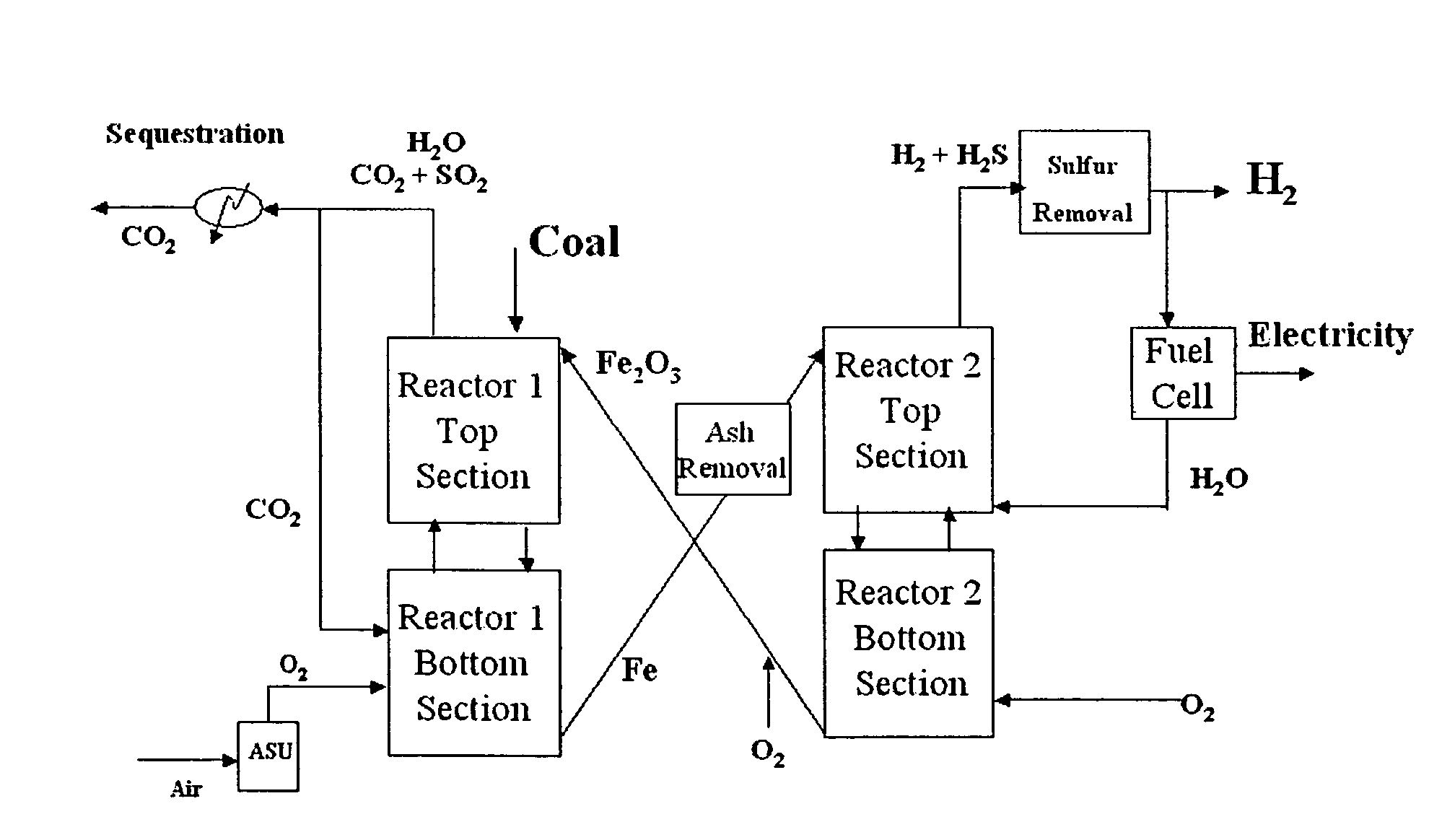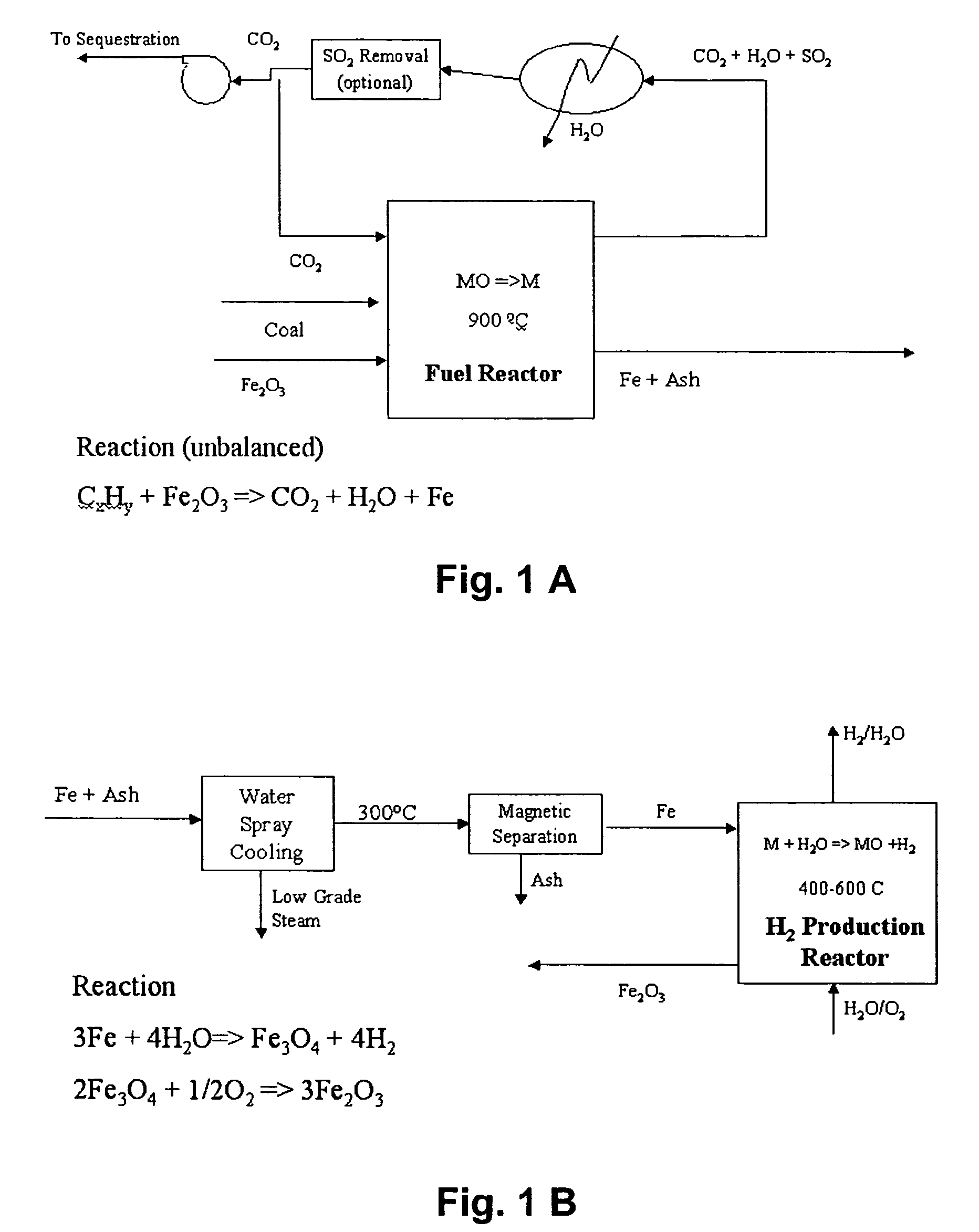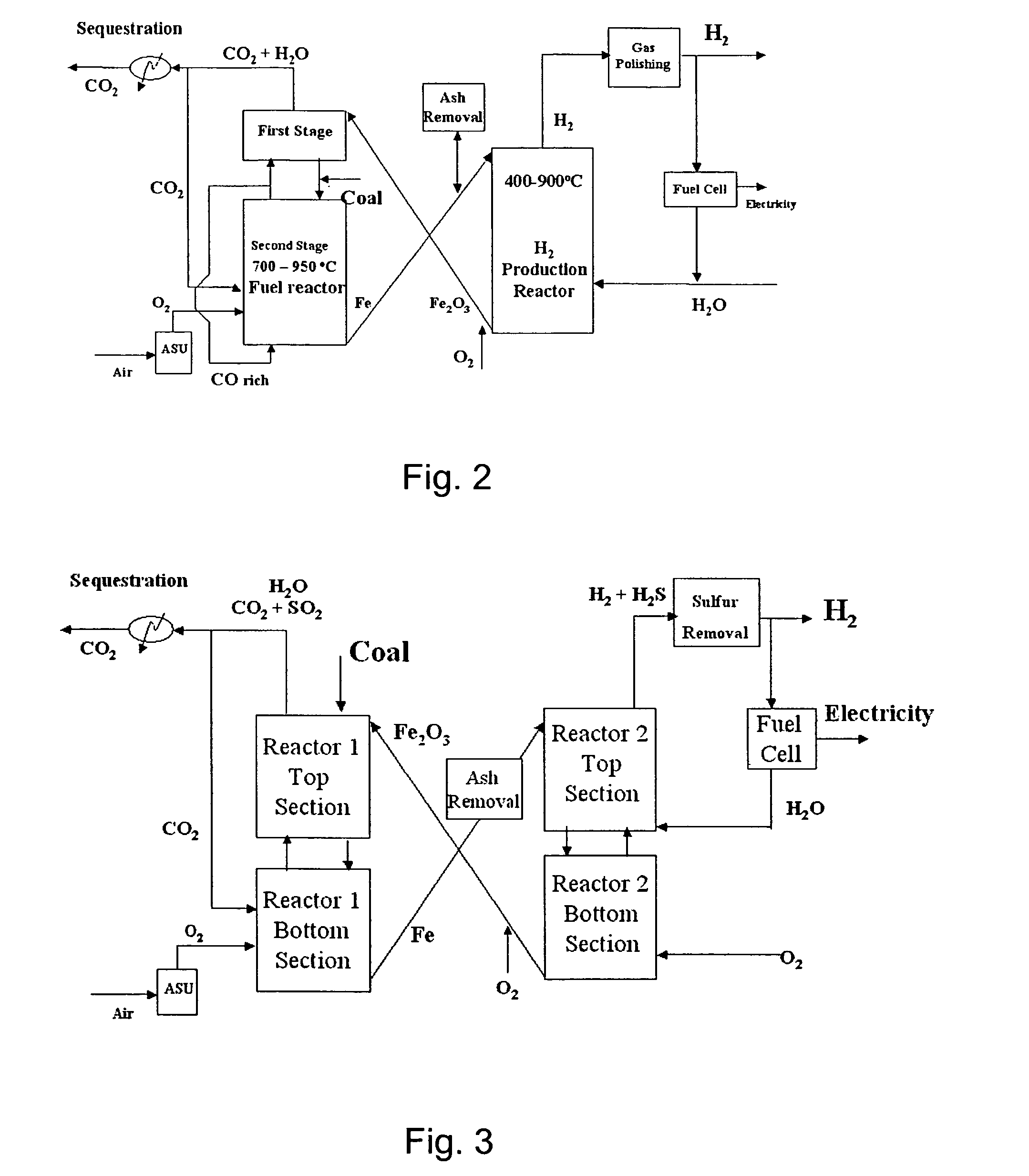Combustion looping using composite oxygen carriers
a composite oxygen carrier and looping technology, applied in the direction of indirect carbon-dioxide mitigation, metal processing, combustion gas production, etc., can solve the problems of limiting conversion efficiency, difficult to maintain the redox activity of pure iron oxide over multiple reduction/oxidation cycles, and the economic viability of large amounts of relatively pure hydrogen gas remains elusive. , to achieve the effect of large surface area and higher energy conversion efficiency
- Summary
- Abstract
- Description
- Claims
- Application Information
AI Technical Summary
Benefits of technology
Problems solved by technology
Method used
Image
Examples
example
[0064]A 66.7 wt. % Fe2O3—TiO2 porous composite particles were tested for cyclic reduction and oxidation. The composite particles were prepared using a modified sol gel technique. Titanium isopropoxide was dissolved in methanol in a beaker and a solution of FeCl3.6H2O in methanol was added to it with continuous stirring. An initial gel formed which quickly disappeared. On standing, coupled with slight heating, a translucent gel was formed. The gel was dried for 24 hours in a vacuum at 60° C. and calcined at 500° C. for 2 hours in air to form the composite particles. The particles showed no drop in activity and oxygen carrying capacity over 8 cycles of reduction with H2 and oxidation with air, as can be seen from FIG. 7
PUM
| Property | Measurement | Unit |
|---|---|---|
| size | aaaaa | aaaaa |
| pore sizes | aaaaa | aaaaa |
| temperatures | aaaaa | aaaaa |
Abstract
Description
Claims
Application Information
 Login to View More
Login to View More - R&D
- Intellectual Property
- Life Sciences
- Materials
- Tech Scout
- Unparalleled Data Quality
- Higher Quality Content
- 60% Fewer Hallucinations
Browse by: Latest US Patents, China's latest patents, Technical Efficacy Thesaurus, Application Domain, Technology Topic, Popular Technical Reports.
© 2025 PatSnap. All rights reserved.Legal|Privacy policy|Modern Slavery Act Transparency Statement|Sitemap|About US| Contact US: help@patsnap.com



